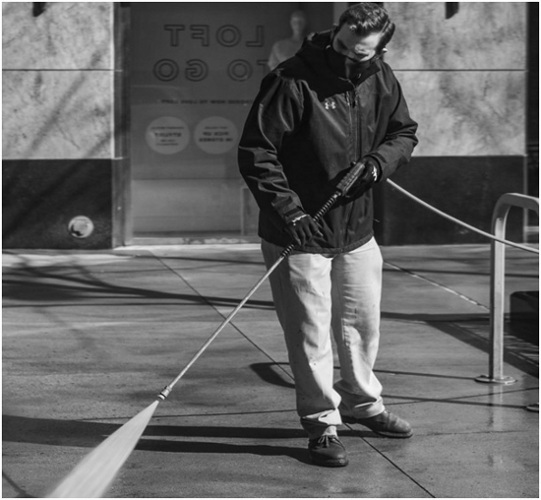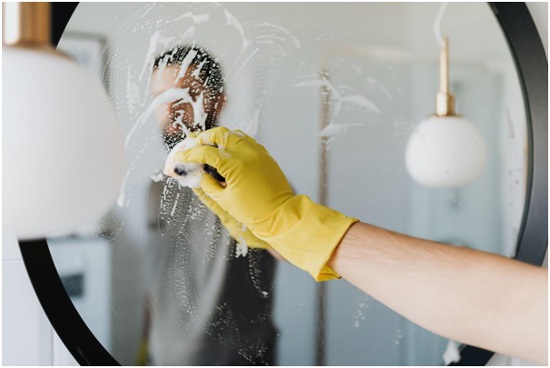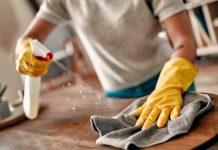Cleaning your house seems to be easier when it’s done inside. Cleaning the inside of your home can be a daily routine. From doing the dishes to vacuuming and washing the bathroom, these are regular activities.
But then, how do you clean the exterior? How can you clean the walls, sidewalks, and concrete floors? Cleaning your house should not be restricted to just inside. Over time, the walls, roof, and floor surfaces accumulate dirt and algae.


This not only makes the house unpleasant to look at, but it can also impose health risks. However, when it comes to cleaning the exterior of your house, you need a different approach. Brooms and brushes alone can’t do the job.
The only way to clean your walls and sidewalks effectively is to use a pressure washer. Trust me, pressure washing services can do the trick. It’ll restore shine to your house.
But before you use a pressure washer, there are some things you need to know. Pressure washers, when misused, can damage properties and cause injury.
These are the must-know things before doing house pressure washing:
1. Hire a Professional Pressure Washing Company
The best people to carry out any task are those with experience. Before purchasing that pressure washing machine, consider giving the contract to professionals. They can render a full house pressure washing service. You can get both pressure washing and window cleaning services alongside roof pressure washing.
Experts have been trained on the different types of power washers and nozzles. They can tell what nozzle is best for any surface and material. Interestingly, professional pressure washing services don’t always have to be expensive. You can pay for only the services you need and get results.
2. There Are Different Types of Nozzles
Before you start pressure washing your home, you must note that different nozzles are used for different purposes and surfaces. While some spray at a wider pattern, there are others that spray water in a narrower pattern.
The color of the nozzle represents the type. There are basically five nozzle colors.
- The black nozzle is the spray tip with the widest range. It is mostly used to apply detergent or for rinsing off soap.
- The white nozzle is best for cleaning delicate surfaces. It is used for surfaces like soft stucco walls.
- The green nozzle is used for general cleanings like sidewalks, outdoor furniture, and decks.
- The yellow nozzle is good for heavy-duty washing. It’s used for cleaning surfaces like concrete with stains and garage floors.
- The red nozzle has the highest pressure and power. This is a result of the narrow opening. The red nozzle must be used carefully and for really tough surfaces.
3. Test the Pressure Washer Before Use
Although getting professional pressure washing services is your best bet, you can still pull this through. Before you start pressure washing your home, you should familiarize yourself with the machine.
Begin by reading the instruction manual for the pressure washer. This will guide you and help you understand how the pressure washer works.
Also, before using the pressure washer for the main work, test it on a small spot. You may destroy paints, walls, and soft surfaces if you can’t spray right. It’s better if you make a mess on a little spot than destroy an entire surface.
4. Be Cautious With Pressure Washers
You must understand that pressure washing, when done wrong, can damage your properties as well as cause bodily harm.
For your house pressure washing, you must take caution. Avoid aiming at light fixtures and other delicate areas. Also, avoid spraying a spot for too long. This can cause debt and damage to the surface.
When spraying around a window, apply caution and avoid holes in your window. Holes can cause a water leak in the house when washing. Also, before you begin washing your home, get your pets and kids away. You can either keep them indoors or take them out of the house.
You don’t want a child running into the spray thinking it’s a sprinkler or mere hose. In addition, don’t let children pressure wash until they understand the dangers.
5. Clean the Inlet Filters
The inlet filters of pressure washers are small screen filters that keep the water free of debris. However, when the filter accumulates so much dirt over time, the flow can be limited.
Occasionally, inspect the filter and clear out any debris and blockages. This will enable faster water flow. The water flow rate from the hose can contribute to the efficiency of the washing.
6. Use Adequate Soap When Washing


Be generous with detergent in your house pressure washing. Apply sufficient soap to the surface and let it sit for a while before you rinse
This will help the breaking down of the mold and grime. Using enough washing chemicals will ease your work and give you the best results
7. Don’t Pressure Wash Everything
Pressure washing seems cool, and it’s an easy way to get rid of stubborn dirt. However, avoid using it to wash everything.
When a surface already has wear and tear, avoid using a pressure washer. Pressure washing a worn-out surface can further damage it.
8. Don’t Pressure Wash on a Ladder
As you pressure wash your house, some heights may be beyond your reach. Irrespective of the height of the surface, never pressure wash while on a ladder.
The pressure from a pressure washer is so much that it can knock you off your ladder. Falling off a ladder is the last thing you need during your house pressure washing. The result can be disastrous.
9. Be Well Kitted
This is stating the obvious. However, some people may forget. Before you begin your house pressure washing, ensure that you are appropriately kitted.
Wear hand gloves to protect your hands. Also, safety glasses and face masks are required to protect the face. As mentioned, the pressure washer will release so much power that it can cause bodily harm. Also, debris may fly off from where you’re cleaning, you sure don’t want that debris in your eyes, do you?
Conclusion
Pressure washing has made cleaning surfaces seamless. Now we can get rid of grime, dust, and other debris from our walls, sidewalks, and other hard surfaces.
For a non-professional, you must know these tips before you begin. As much as you want results from washing, you don’t want to dent a surface or cause injury.
















